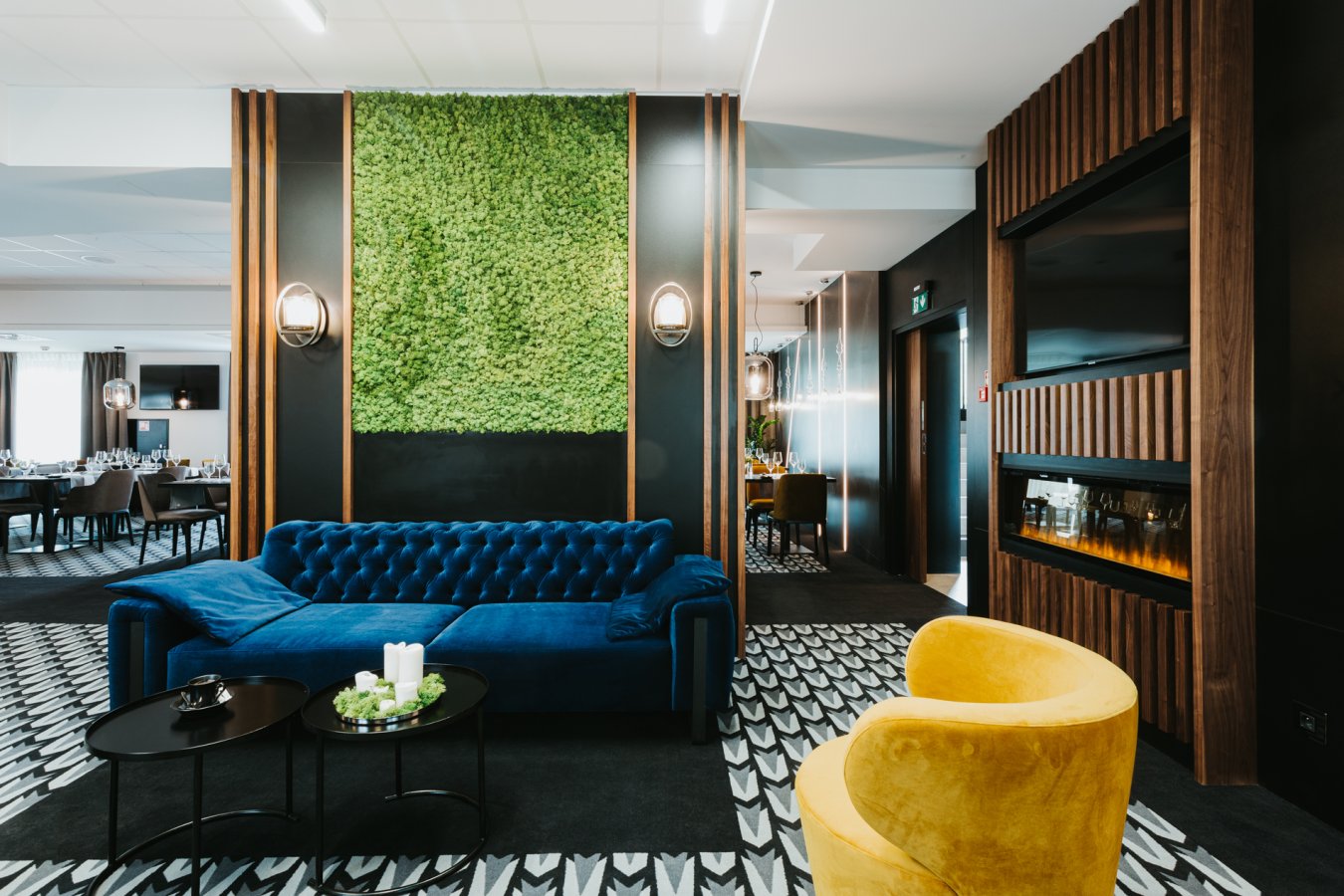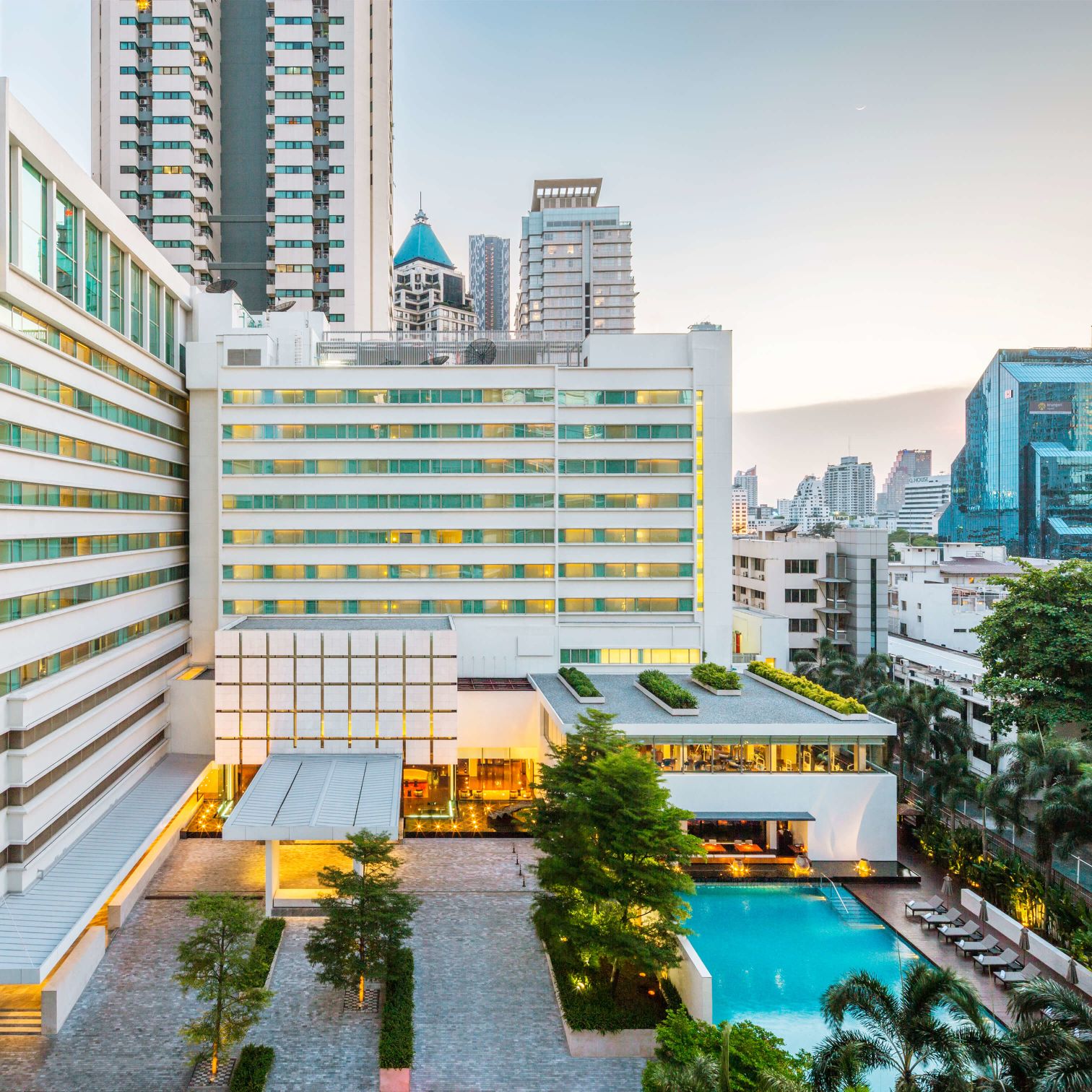A BRIGHT SPOT on the climate-change front: we’re making more sustainable choices as travelers. A recent Booking.com survey showed that 73 percent of us plan to stay in at least one eco-friendly property in the next year, and 70 percent would be more inclined to book a hotel if they knew it was eco-friendly.
Many hotel companies have pared down the use of plastics, increased energy conservation, and launched turtle-hatchling and coral-reef protection programs, but few heavy hitters have mounted as broad an effort as InterContinental Hotels Group (IHG), which has 16 brands to its name. Kimpton Hotels, which joined IHG in 2014, are known for restoring and converting existing buildings into new properties. And last year, IHG acquired Six Senses Hotels Resorts Spas, which has been cutting-edge green since 1995.

Six Senses has never stocked single-use toiletry bottles in any of its 40 properties, and has long built their own water refineries and bottling plants, and kept organic gardens, some with chickens and goats. In 2018, their resorts produced 72,000 kilograms of organic fruit and veg, double the year prior, and diverted 32 percent of their solid waste from landfills (the largest man-made source of methane), instead turning it into compost or pig feed.
All hotels have an Earth Lab to support local production and reduce consumption, to connect guests—and local schoolkids—with nature and to give them life hacks to stay eco at home. Every resort inventories its plastic items (none have PET water bottles) and files a monthly sustainability report, with the data going to Cornell’s Hotel Sustainability Benchmarking Index, which develops international guidelines. And each Six Senses has a sustainability fund whose proceeds go to conservation and social equity programs: Six Senses Douro Valley, in Portugal, for instance, pays the school fees through university of gifted local students and has a refuge to protect the native, endangered (cuddly) Miranda donkey.


The kitchen oil at Six Senses Uluwatu in Bali and Zil Payson in Seychelles is converted to biodiesel. The solar microgrid (using Tesla batteries) at Six Senses Fiji is the largest in that country. Six Senses Laamu has a campaign to protect seagrass (and prevent erosion) that it says a quarter of its fellow resorts in the Maldives have joined; more adorably, they helped develop the world’s first non-invasive underwater ultrasound scanner to study pregnant wild reef manta rays in their atoll.
Conservation projects that guests can participate in directly help keep travelers invested, says Jeff Smith, Six Senses’ vice president of sustainability, citing the turtle nesting and release program at the Con Dao resort in Vietnam. Forty-four percent of guests who return to a Six Senses property say it’s because of the focus on sustainability, according to the group.


Spurred on by Six Senses, IHG has launched sweeping initiatives. In July, it said it would eliminate miniature toiletry bottles from all locations by 2021, and the company is working on technology-driven solutions to make sustainability efforts easier to roll out.
At seven IHG properties in Europe, the Middle East, Asia and Africa, artificial intelligence–based smart-meter tech monitors food waste; it has helped the 190-room InterContinental Fujairah Resort, in the United Arab Emirates, halve its refuse output in just six months. “If we can find solutions and prove that sustainability works,” Smith says, “we hope other hotel companies, other industries, and our guests will take it up as well.”

T+L EDITORS’ ECO RECS
Beyond toting your own refillable water bottles and carrying cloth bags for souvenir shopping, consider these items that help our team minimize single-use plastics when on the road.
SUSTAINABLE WORKOUT WEAR
I always travel with a Pilates outfit, and one of my favorite pairs of leggings is by Threads 4 Thought (leggings from US$68), made with 35 recycled plastic bottles. The company also works with the International Rescue Committee to support refugees. Other great green athleisure brands that ship to Asia and are using PET bottles, plus bamboo, eucalyptus and upcycled textiles—as well as getting food, clean water and even birth certificates to the world’s needy—include Prana (from US$65), Asuno (from £42) and Tala (£40). — J.L.S.J.
BAMBOO UTENSILS
I picked up a cute bamboo straw, brush and pouch set at a little café-boutique in Koh Kood last year and it has had far more use than I ever expected it would. Bamboo items are pretty easy to find across Asia now, and you can even buy them online. Lao’s Ock Pop Tok (US$6 for five straws) and Bambu (US6.50 for four jumbo straws), based in China, both sell handmade products sourced from local villages, the proceeds of which go back to those communities. – BEK VAN VLIET OWEN
Consider these eco-friendly hotels next time you plan a trip:

